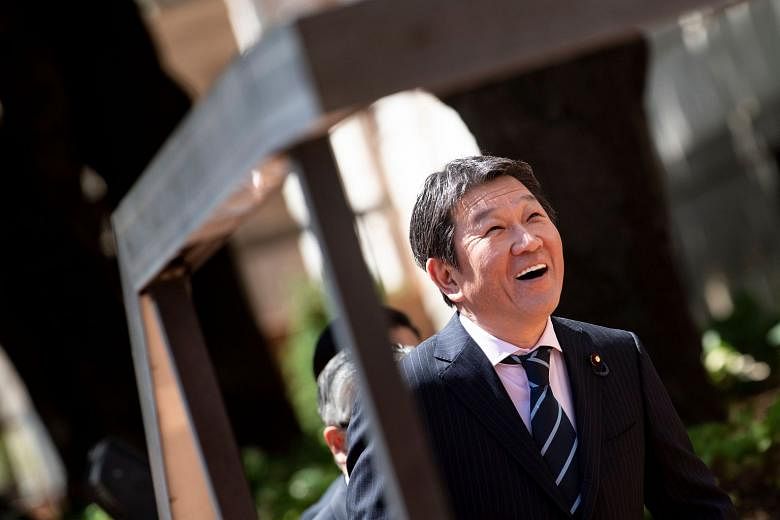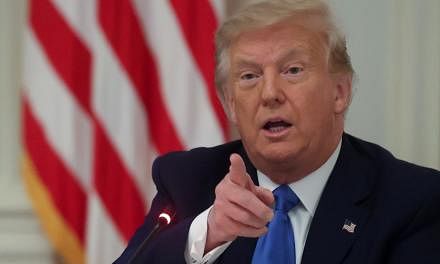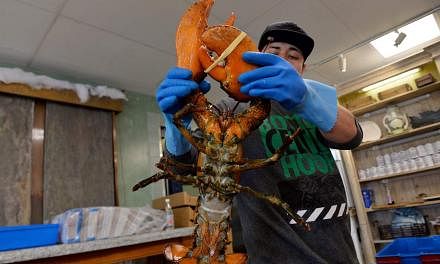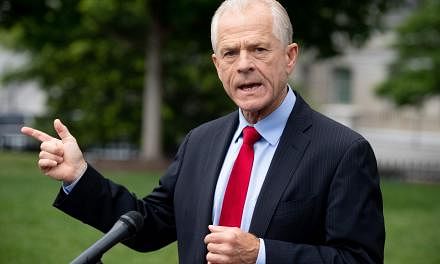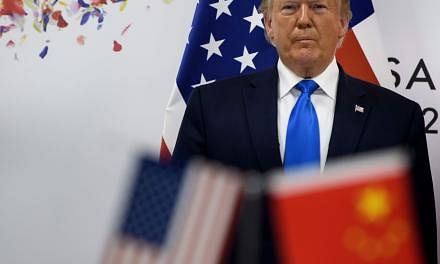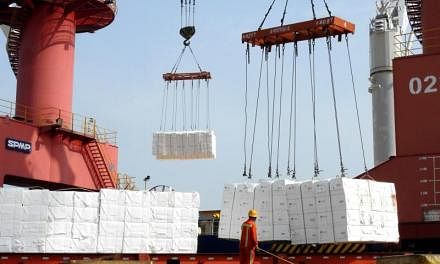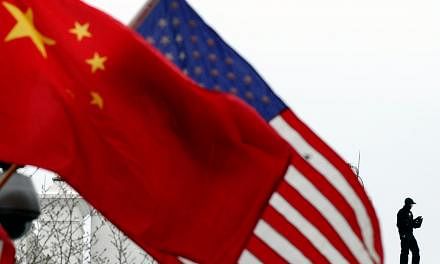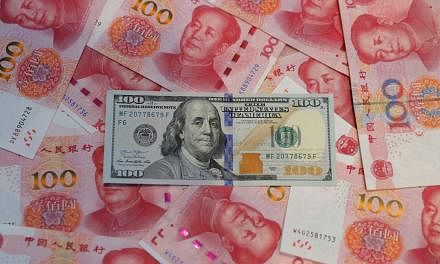TOKYO - Japan's chief trade negotiator Toshimitsu Motegi on Friday (May 31) called for cool heads to prevail in what has effectively become an "escalation of tariff hikes" that will hurt the global economy.
Mr Motegi, who is economic revitalisation minister, is Japan's point man for trade talks with the United States. He told the 25th Nikkei Future of Asia conference on Friday that trade disputes ought to be resolved by "finding a solution based on rules and consultation".
This year's two-day forum, themed "Seeking A New Global Order - Overcoming The Chaos", looked at the deepening global uncertainties given the US-China trade war as well as military and security tensions in technology and the South China Sea.
The Straits Times is a media partner of the annual event.
Philippine President Rodrigo Duterte, in the closing session on Friday, voiced rare exasperation with China as he urged the Asian giant to quickly conclude a code of conduct on the South China Sea with Asean.
"I love China," he told the Nikkei forum. "It has helped us, but it behooves upon us to ask: 'Is it right for a country to claim the whole ocean?'"
The South China Sea is on the verge of becoming a "flashpoint for trouble", he said, given the arms race under way with a military build-up of Chinese ships and those from the West, such as US, France and the United Kingdom.
"(They are) really testing (who) fires the first shot," he warned.
The two-day conference repeatedly heard that the clash of the titans - feuding US and China - is bound to leave collateral damage in its wake if allowed to escalate.
Even Japan, the third-largest economy in the world, will not escape unscathed, Mr Motegi said, noting that the US-China trade war is proving to be detrimental to the world economy and has already caused weakened business sentiment in Tokyo.
China's tariff hike on US$60 billion of US goods to 25 per cent from 10 per cent takes effect on Saturday (June 1), a move that is in retaliation over US President Donald Trump's latest tariff hike on US$200 billion of Chinese imports. Talks broke down between the two sides early last month (May).
Japan and the US remain far apart on trade too, Mr Motegi had said after a meeting with US Trade Representative Robert Lighthizer in Tokyo last Saturday (May 25).
Even so, he told the forum on Friday (May 31) that he was hopeful that Japan and the US will eventually iron out their differences, though he foresees "very strict negotiations where there will be a collision in national interests".
The Japan-US trade quagmire is centred on two key issues: autos and agriculture.
To address Japan's US$67.6 billion trade surplus over the US, Washington has threatened its stalwart security ally that it will raise tariffs on cars and auto parts to 25 per cent on national security grounds, much to the bewilderment of Tokyo.
The US wants lower tariffs on farm products. But Japan is reluctant to give more concessions than what it had already agreed in mega-trade deals like the Comprehensive and Progressive Agreement for Trans-Pacific Partnership (CPTPP).
The auto tariffs, if implemented, will damage a vital component of Japan's economy. Demand for US agricultural goods in Japan, meanwhile, has fallen since the CPTPP came into effect as US goods have become less competitive.
Still, Mr Motegi said he felt the US was asking for tariff reductions that, "rather than exceeding the terms set in the TPP, are aimed at promptly addressing a situation where it sees itself at a disadvantage to other nations".
He added that he believes it will be possible to achieve a deal that will be a good model for Asia.
